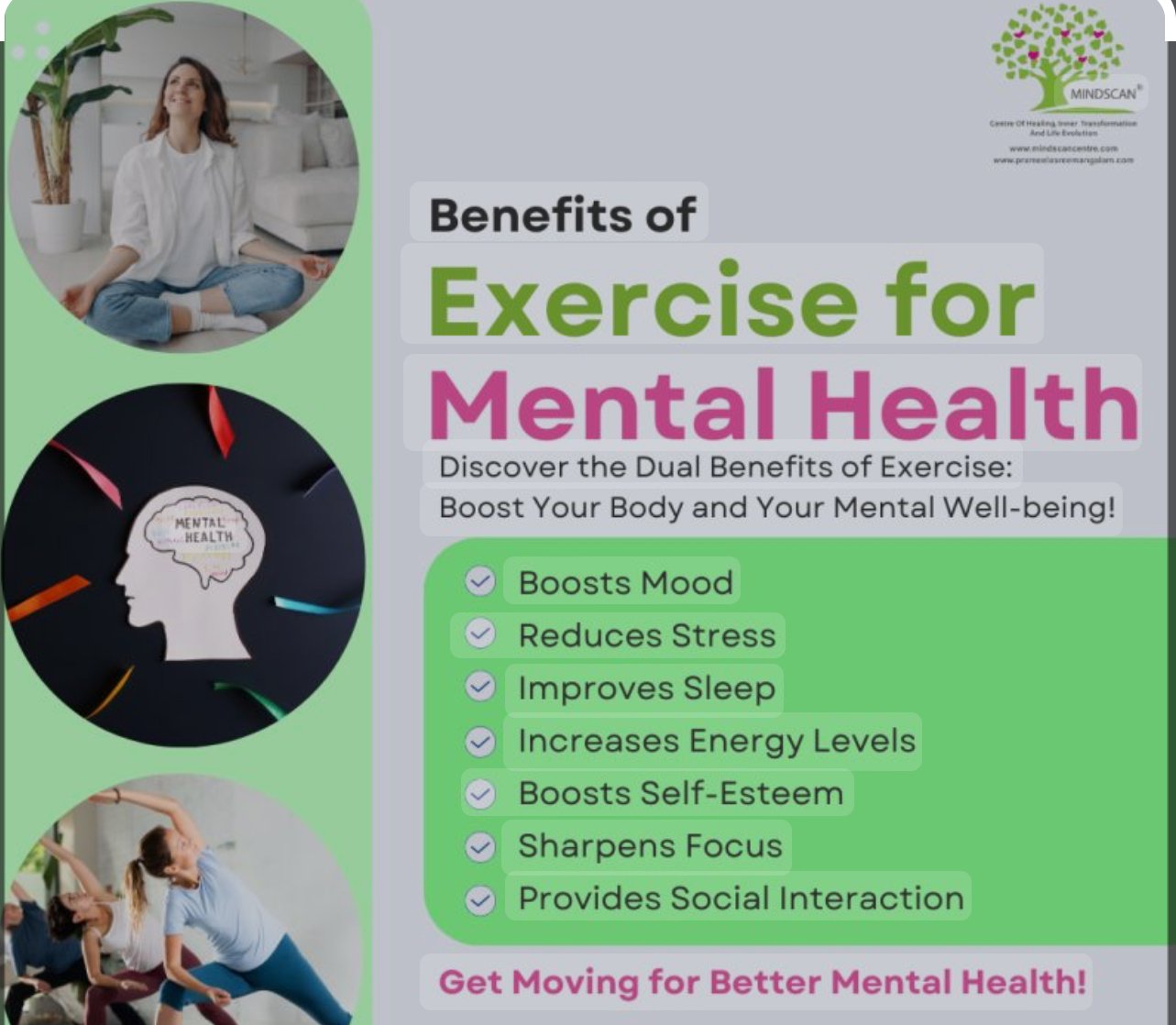The Benefits of Physiotherapy for Mental Health
PHYSIOTHERAPY can greatly enhance mental health in a number of ways and frequently works in conjunction with conventional mental health therapies. Here are some detailed benefits
Contents
The Benefits of Physiotherapy for Mental Health

1. Stress Reduction
- Physical Activity: Exercise is known to reduce stress levels by triggering the release of endorphins, which are natural mood lifters. PHYSIOTHERAPY often involves exercises that help reduce muscle tension and promote relaxation.
- Relaxation Techniques: Techniques such as deep breathing, progressive muscle relaxation, and guided imagery, which can be part of physiotherapy, help in managing stress.
- Biological Mechanisms: Physiotherapy exercises help regulate the autonomic nervous system, which controls the body’s stress response. By stimulating the PARASYMPATHETIC NERVOUS SYSTEM , exercises promote relaxation and reduce cortisol levels.
- Mindfulness and Body Awareness: Techniques such as yoga and tai chi, often included in physiotherapy, promote mindfulness, helping individuals become more aware of their body and manage stress effectively.

2. Improved Mood
- Endorphin Release: Engaging in regular physical activity through physiotherapy can boost endorphin levels, which can improve mood and provide a sense of well-being.
- Accomplishment and Empowerment: Reaching recovery goals and finishing physiotherapy exercises can boost confidence and give a feeling of achievement, which improves mood.
- Behavioral Activation: Engaging in physiotherapy encourages activity and movement, which counters the inactivity often associated with depressive states. Behavioural activation like this improves mood.
3. Enhanced Cognitive Function
- Increased Blood Flow: Exercise improves blood flow to the BRAIN, which can enhance cognitive functions such as memory, attention, and executive functions.
- Mental Clarity: Regular physical activity can help reduce mental fatigue and increase clarity and focus.
- Neurogenesis: It has been demonstrated that EXERCISE promotes the development of new neurons in the HIPPOCAMPUS , a region of the brain linked to learning and memory. Mental clarity and cognitive function depend on this mechanism.
4. Reduced Anxiety
- Physical Activity: Exercise is an effective way to reduce symptoms of anxiety by lowering cortisol levels and promoting relaxation.
- Mind-Body Connection: Physiotherapy often includes mindfulness and body-awareness techniques that help individuals become more aware of their bodily sensations and manage anxiety.
- Reduction of Muscle Tension: Physiotherapy techniques often address muscle tension and tightness, which can be physically and mentally calming, reducing overall anxiety levels.
- Relaxation Practices: Techniques such as deep breathing, progressive muscle relaxation, and guided imagery, which may be incorporated into physiotherapy, help in calming the nervous system.
5. Better Sleep
- Sleep Quality: Regular physical activity and exercise, which are part of physiotherapy, can help improve sleep patterns and reduce insomnia. It is critical for general mental wellness to get better sleep.
- Regulation of Sleep Patterns: Physical activity influences sleep by increasing the duration of deep sleep and reducing the time it takes to fall asleep.

- 6. Increased Social Interaction
- Therapeutic Environment: Physiotherapy sessions often involve direct interaction with the therapist, which can provide social support and reduce feelings of isolation.
- Group Therapy: Some physiotherapy programs incorporate group exercises or classes, offering additional social interaction and support from peers.
7. Management of Depression
- Mood Enhancement: As with anxiety and stress, the endorphin release from exercise helps combat symptoms of depression.
- Routine and Structure: Frequent PHYSIOTHERAPY sessions give daily routines structure, which is advantageous for those who are depressed.
- 8. Improved Physical Health
- Physical Health Impact: Physiotherapy can improve physical health by addressing issues like pain, mobility, and strength. Because of the decreased discomfort and improved quality of life, improved physical health frequently correlates with improved mental health.
9. Holistic Approach
- Comprehensive Care: Physiotherapy often involves a holistic approach that considers both physical and mental well-being, providing a comprehensive treatment plan that addresses multiple aspects of health.PHYSIOTHERAPY improves both physical and psychological well-being by combining these elements to enhance MENTAL HEALTH in a comprehensive way
